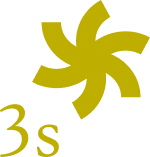The best Erasmus+ projects promoting inclusion in education

image by Photo by Clay Banks on Unsplash
Strengthening basic skills is a central goal of European policy and offers to promote them start early in educational biographies. One in five 15-year-olds still lacks competences in reading, mathematics or science (OECD PISA Study, 2018). Around 10% of young people in the EU drop out of education and training early, and only 84.3% of 20–24 year olds have completed upper secondary education (Eurostat, 2020). Children from poorer areas and families do on average worse at school than their more privileged peers. The Covid 19 pandemic has highlighted these challenges even more.
In this project, 3s conducts a systematic survey and analysis of Erasmus+ projects with a focus on inclusion. It looks at the four pillars of intervention, monitoring, prevention, and intervention and compensation in relation to the three risk areas: insufficient basic skills, leaving education and training early, and declining sense of belonging and well-being. The results will provide evidence for further development and implementation in policy and educational practice at different levels of governance.
120 projects from all EU-27 countries and beyond are analysed and 15 of them are presented as good practice in a final report. Methodologically, the project is based on desk research, qualitative interviews and case studies. Monika Auzinger is on the research team for 3s.
Project: Data collection and analysis of Erasmus+ projects promoting inclusion in education and aiming to address underachieving in basic skills, early leaving from education and training/failure to achieve an upper secondary qualification; declining sense of belonging and well-being
Contact: Monika Auzinger
Client: European Commission, DGEAC
Duration: 04-11/2021


